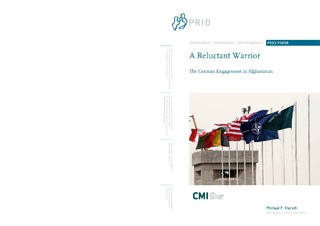A Reluctant Warrior. The German Engagement in Afghanistan.
Research report
Permanent lenke
http://hdl.handle.net/11250/2474881Utgivelsesdato
2011-01-01Metadata
Vis full innførselSamlinger
- Publications [1488]
Originalversjon
Oslo: PRIO (PRIO Paper)Sammendrag
Germany’s engagement in Afghanistan post -9/11 is a milestone in German foreign policy. It is historically significant, as it marks the first deployment of German combat troops outside Europe since World War II. It has also heavily influenced public and scholarly debates about German foreign policy. In particular, the operation has called into question the popular notion that reunified Germany is exclusively a “civilian power”, whose foreign policy culture inhibits the offensive use of force. This notion was dramatically challenged in September 2009, when a German commander called in an US airstrike against Taliban insurgents near Kunduz that killed up to 142 people, most of them civilians. Which factors have determined Germany’s Afghanistan policy and how can we explain its evolution over time? This study examines the nature and determinants of Germany’s engagement from 2001 to the present. It argues that neither a foreign policy culture of restraint, nor challenges posed by the operational environment in Afghanistan can sufficiently explain German policy. The paper advances a “two -level game” argument based on liberal -institutionalist approaches to foreign policy analysis: in brief, Germany’s Afghanistan policy is motivated by the need to simultaneously navigate international expectations and domestic pressures.
